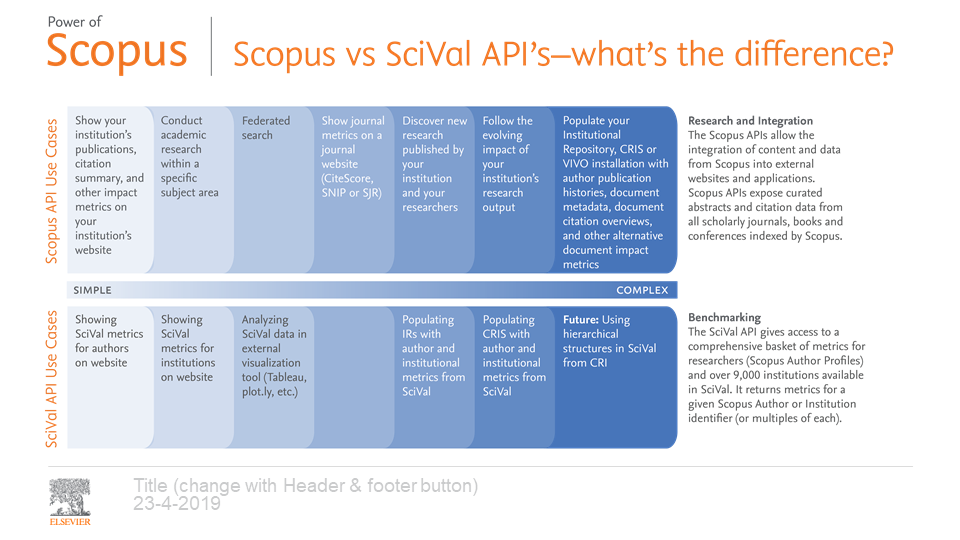Join our webinar on Scopus APIs on Tuesday 7 May
Click here to register for our free webinar, on Tuesday 7 May, co-presented by Bill Mischo, Head of the Grainger Engineering Library Information Center, at the University of Illinois at Urbana-Champaign and Matt Direnzo, Senior Elsevier Product Manager.
Scopus captures articles being published in virtually all scholarly journals of any significance in the world; and its profiling of authors and institutions makes it easy to find new articles by those authors at those institutions. The Scopus web user interface offers many features allowing librarians, researchers, developers and & business intelligence groups to manually find publications originating from their institution.
Aside from that user interface, Scopus also has Application Programming Interfaces (APIs) that offer the same features, but with results in a machine-readable format that enables software, rather than humans on the web, to find articles, authors and institutions in Scopus.
This allows developers to write programs that automatically extract data from Scopus and integrate that data with their systems & applications.
Always wanted to make use of the Scopus APIs, but not sure where to start? Or simply want to hear how others are using APIs to answer pressing questions, gain insights to power your institution’s research strategy or create strong visualizations which tell a compelling story to key stakeholders?
Join our webinar on Tuesday 7 May, co-presented by Bill Mischo, Head of the Grainger Engineering Library Information Center, at the University of Illinois at Urbana-Champaign and Matt Direnzo, Senior Elsevier Product Manager, explaining how to employ the Scopus APIs to create powerful data visualizations.
Bill shows how he employed a combination of Scopus APIs to generate research impact visualizations to support strategic planning in the College of Engineering’s new engineering-based college of medicine. The custom databases and visualizations showcase the research impact of various units or groups– for grant applications, program review, and other research assessments. It also allows individual researchers to visualize their research network.
Following on, Matt will discuss some of the basic (and more complex) use cases of the Scopus APIs and their advantages when compared to downloading data from the scopus.com platform. Scopus APIs expose curated abstracts and citation data from all scholarly journals indexed by Scopus, Elsevier's abstract and citation database.


